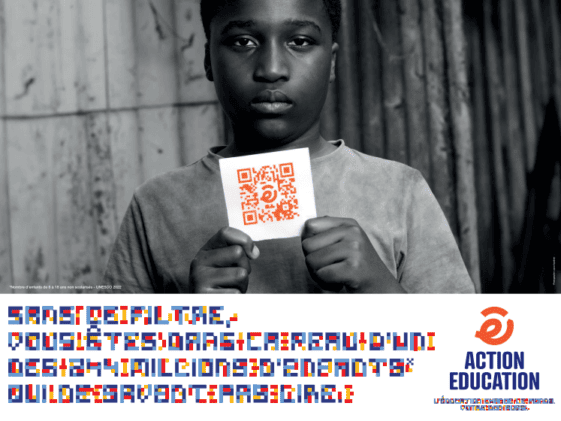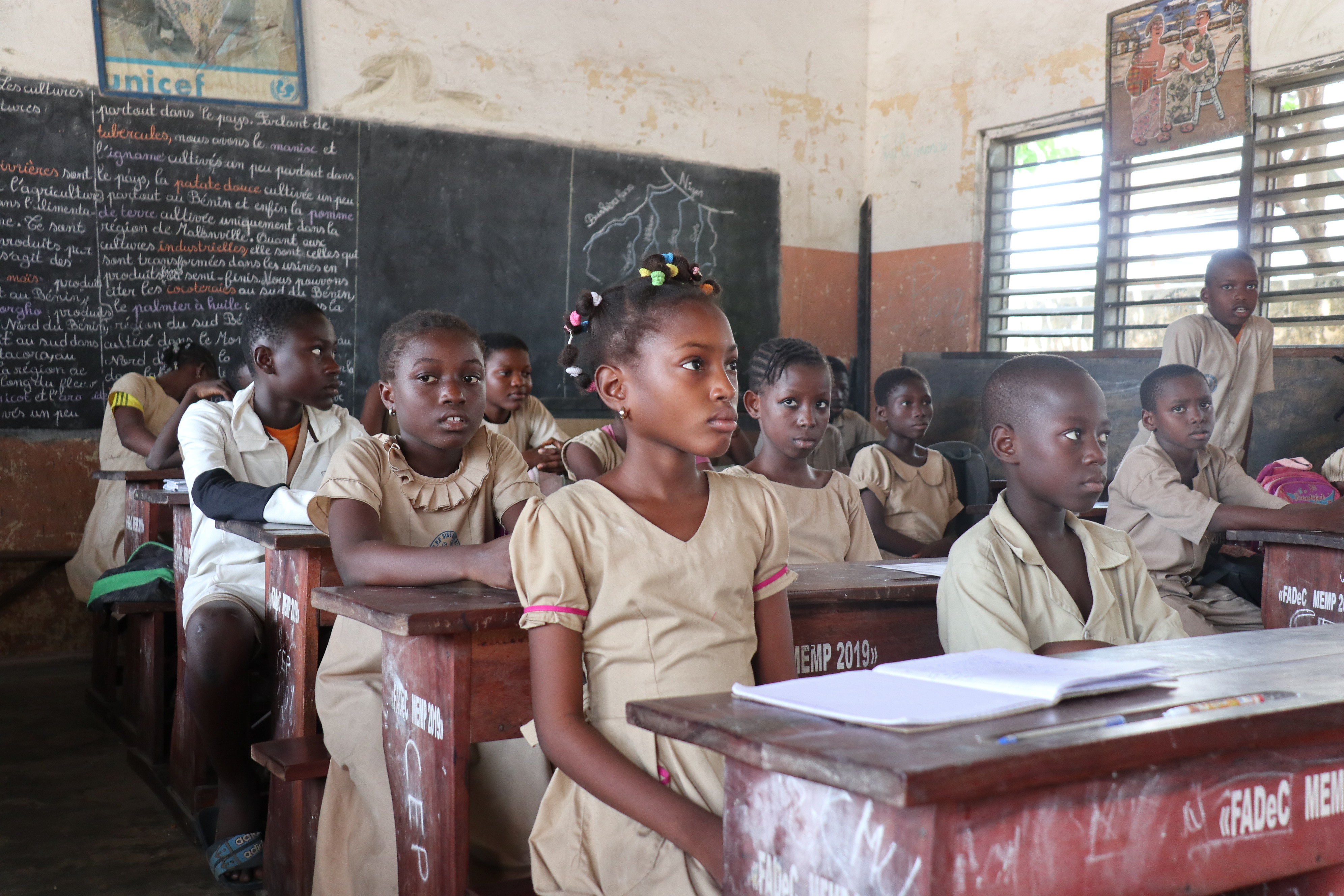Photo header credit : Julie PUDLOWSKI
The international NGO Action Education is sounding the alarm: more than 773 million adults, two-thirds of them women, are illiterate and 250 million* children are not currently in school. Deprived of their fundamental rights, particularly to education, children and adults, men and women, find themselves exposed to extreme insecurity and social exclusion. In its new awareness-raising campaign, Action Education denounces this intolerable situation, which is in danger of worsening as a result of the ever-increasing crises that are jeopardising the future of the youngest generations.
More than a billion people today cannot read or write, and are exposed to the greatest economic and social insecurity. This number has stagnated for more than two decades, due to a lack of political will and dedicated human and financial resources. Given that 250 million children are currently not in school - a figure that is rising - and that 222 million children in crisis situations are in urgent need of education, there is every chance that the number of people suffering from illiteracy will increase in the coming years.
Whether political, economic, security-related or climatic, the crises that people have to deal with fuel an intergenerational cycle of poverty and highlight a real lack of education. The situation is all the more alarming because even children with access to education face extremely precarious learning conditions: overcrowded classrooms, lack of teacher training and absence of adequate teaching materials. 2 out of 5 children, or 392 million**, who start school today will not be able to read or understand a simple text by the age of 10.
Dramatic consequences, particularly for young people
How long are we going to let this situation get worse?" asks the international NGO Action Education, which is today launching a new awareness-raising campaign, "How long are we going to let this situation get worse? How to read ". The visuals, which require a QR Code to be read, put the general public in the shoes of someone who cannot read or write.

" All too often, we forget just how dramatic the consequences of not being able to read or write can be on a day-to-day basis. As an adult, you can't do your shopping, get medical treatment or fill in administrative documents, and you can't help your children with their education. For the youngest, it's a death sentence: without education, there's no diploma, no care, no rights. They are doomed to insecure employment, in the informal economy for the lucky ones. The others have no other way of surviving than to be forced into marriage, to sink into delinquency or to join extremist groups. There is an urgent need today to make people understand the importance of quality education, accessible to all, without discrimination and throughout life. It is the only possible key to ensuring that people, especially the most vulnerable, can know their rights, defend them, have a job, be a citizen and become agents of change. "explains Vanessa Martin, Advocacy Manager at Action Education.
Concrete solutions to inadequate words and deeds
In 2015, governments pledged to build a sustainable world, free of hunger and poverty, in 15 years, where everyone has access to 12 years of free education. " Halfway through the programme, we can easily see that this promise will not be kept. In addition to the explosion in the number of children not attending school, there is unfortunately a serious learning crisis. Even when they do go to school, more than 7 out of 10 children in the least developed countries today cannot read a simple sentence. "says Vanessa Martin.
Faced with this untenable situation, which is jeopardising the very future of the world, Action Education is calling on the public authorities to mobilise at the highest level to make lifelong education a political priority, to finally allocate the appropriate financial and human resources, to recruit trained and qualified teachers and to guarantee them optimum working conditions....
In addition, the NGO is calling for the development of pre-primary learning facilities, which are currently totally neglected - 175 million children in the world currently have no access to them - as well as an increase in the number of bridging classes, support classes and tutoring, particularly for the most vulnerable children and young people, especially girls, in order to prevent them from failing at school or dropping out.
*Unesco 2022
**Child Atlas September 2023
Press contact:
Auvray & Boracay / Teninsy Savané
Mail : [email protected]
Tel.: 01.58.22.21.11






